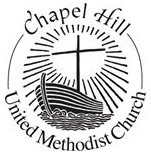On Sunday, October 17, we considered what faith and life look like when we recognize that sacrifices of atonement, interpreted in light of Jesus Christ’s sacrifice, were acts done under the paradigm of restitution rather than retribution. In the newsletter that following week, we considered what that suggests to us concerning sin post-faith. Life after faith is more than being a forgiven sinner who will always be trapped in sin. Indeed, the restitution Jesus made for us with his faithfulness empowers us and calls us to live lives driven by love of God and neighbor rather than sin and selfishness. The fruit of our lives is meant to originate in God’s grace rather than sin’s control.
The other side of the conversation is reconciliation. If the sacrifice of atonement, then what does this mean for reconciliation with our neighbor(s), personally, communally, socially, politically. God went to great lengths to reconcile with us through Jesus. That has led some to think the answer to reconciliation is simply to “forgive and forget” or for the offender who caused harm to say, “I’m sorry.” There is a grain of truth in this. As we recite in our confession, “Christ died for us while we were yet sinners. This proves God’s love toward us.”
However, if we pay attention to our scriptures, especially the teaching and story of Jesus, we find reconciliation is more active than the above. The above hints at God’s call to us to love our enemies. To be peacemakers. To break the cycles of harm and violence that plague this world. Yet reconciliation is more than words. Consider the stories of the rich young ruler and Zaccheus. Both had come into wealth through sinful means. The ruler is told to sell all he has and give the proceeds to the poor in order to enter the reign of God. He goes sad, unable to part with his material wealth. He was, essentially, being told to make restitution for the wealth he had accrued off the backs of oppressed people, people he and others governing the systems of the day had harmed.
Now consider Zaccheus. Jesus invites himself to Zaccheus’ house. Zaccheus encounters God’s love in that meal and responds to God’s forgiveness by deciding to make things right with those he harmed by paying back to them four times what he defrauded as a tax collector.
Now consider, Jesus instructed his followers in the Sermon on the Mount to be reconciled with those they had harmed before bringing their sacrifice to the altar. Jesus’ sacrifice of restitution through faithfulness is an act of grace for our salvation, but our salvation is not just about receiving God’s favor, it is about growing in God’s love. There is no better way to grow in love and have a loving perspective of who we are in relation to God and our fellow humans than to make restitution for the harm we have caused.
So consider how this is practiced. We lie to someone. We cause someone physical harm. We take credit for someone else’s work. We use someone else. People are harmed by the inequity of our social systems. How do we show love and a desire for reconciliation through restitution as we follow Christ’s example of faithfulness?
Grace and peace,
Rev. J.D. Allen
Pastor’s Message: Nov. 8, 2021

